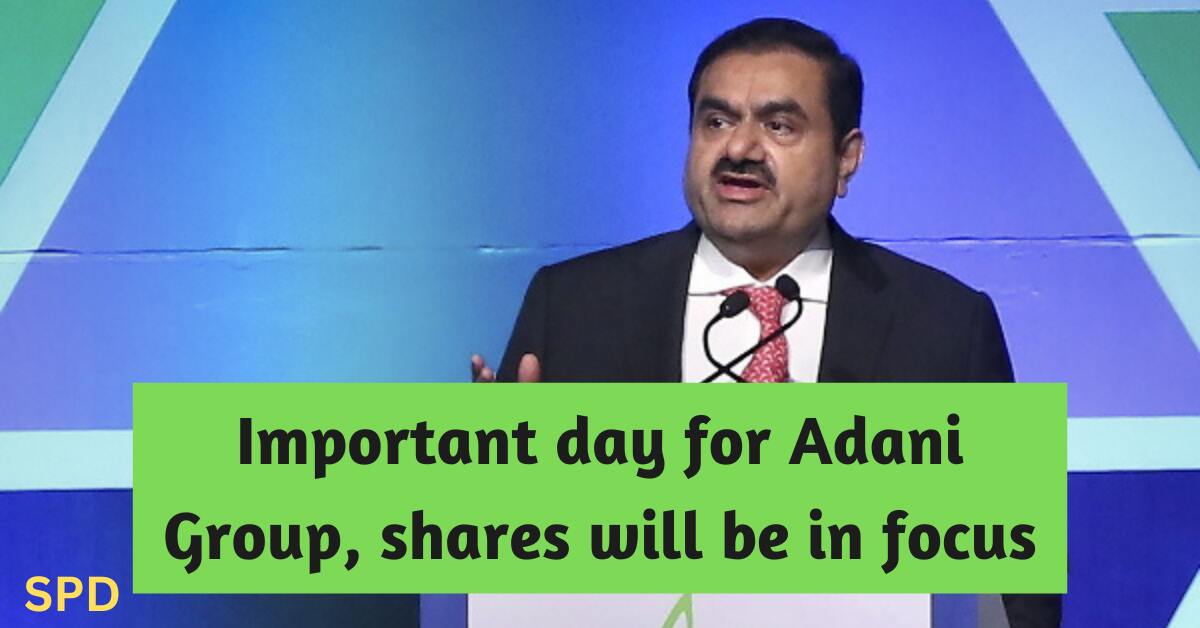The Supreme Court’s decision regarding Adani Group is going to come today. Today the Supreme Court will hear the Hindenburg case.
Adani Group Share News
In a case that has gripped the financial and legal circles, the Supreme Court of India is poised to deliver its verdict on the Adani-Hindenburg case, a matter rife with allegations of share manipulation and financial impropriety. The bench, led by Chief Justice DY Chandrachud, alongside Justices JB Pardiwala and Manoj Mishra, is set to pronounce its decision at 10:30 am, marking the culmination of a complex legal battle that began in earnest on January 24, 2023.
At the heart of the dispute are damning accusations lodged by Hindenburg Research against the Adani Group. These allegations, ranging from money laundering to share manipulation, prompted the Supreme Court to intervene, forming a 6-member committee to investigate the claims. Simultaneously, the Securities and Exchange Board of India (SEBI) was tasked with conducting a parallel inquiry.
Also Read- Apple Stock Price: Apple’s stock may fall due to decline in demand for iPhone
Gautam Adani News
The turning point in this legal drama occurred on November 24, 2023, when Chief Justice DY Chandrachud, after a thorough hearing, reserved the decision. Emphasizing the need for an impartial investigation, the Chief Justice underscored that Hindenburg’s report should not be taken as an irrefutable truth. Instead, the court directed SEBI to conduct a comprehensive examination of the allegations.
The crux of SEBI’s investigation centered on two critical aspects:
- Violation of Rule 19(A): This pertains to the minimum public shareholding required in listed companies. Indian law mandates that at least 25% of the shareholding should be public, i.e., held by non-insiders.
- Manipulation of Stock Prices: SEBI sought to determine whether there was any breach of existing laws related to the manipulation of stock prices.
The Hindenburg report alleged that Vinod Adani, the brother of Gautam Adani, managed shell companies abroad, facilitating the transfer of substantial funds to Adani Group companies in India. This, according to the report, enabled the Adani Group to navigate legal scrutiny effectively.
SEBI’s journey through the investigation process encountered its share of challenges and timeline extensions. The timeline unfolds as follows:
- March 2, 2023: The Supreme Court constituted a committee and granted SEBI a two-month window for investigation.
- May 2, 2023: SEBI requested a six-month extension during the hearing, which the bench granted, extending the deadline until August.
- August 14, 2023: SEBI sought an additional 15 days to complete the investigation.
- August 25, 2023: SEBI submitted a status report to the Supreme Court, revealing that 22 out of 24 investigations were finalized, and two remained incomplete.
On May 19, 2023, the Supreme Court committee made its investigation report public, highlighting SEBI’s shortcomings as a contributing factor to the alleged manipulation of Adani’s share prices. However, the committee refrained from making a definitive conclusion, pointing to the inconclusive nature of SEBI’s investigation into foreign funding in Adani Group companies.
Also Read- Alok Industries share price surges 20% after Reliance Industries invests ₹3,300 crore
Key insights from the expert committee’s report include:
- SEBI’s suspicion that 13 foreign funds investing in Adani Group may have links with the promoters.
- Absence of a wash trade pattern (self-trading to boost volume) in Adani Group shares.
- Identification of institutions that took short positions before the release of the Hindenburg Report, subsequently profiting as the share price fell.
Amidst these developments, a slew of petitions added layers to the legal discourse:
- Manohar Lal Sharma sought an investigation and an FIR against Hindenburg Research founder Nathan Anderson and associates, urging a media ban on the case.
- Vishal Tiwari pressed for an inquiry into the Hindenburg Report through a committee led by a retired Supreme Court judge, highlighting the repercussions on individuals when share prices plummet.
- Jaya Thakur focused on the roles of the Life Insurance Corporation of India (LIC) and the State Bank of India (SBI), demanding an investigation into their substantial investments in Adani Enterprises.
- Mukesh Kumar sought instructions from various agencies for a comprehensive investigation into the matter.
- Anamika Jaiswal proposed the formation of a new committee comprising individuals with impeccable reputations and no connection to the case.
In a separate petition, Vishal Tiwari initiated contempt proceedings against SEBI, citing delays in submitting the final report despite an eight-month-long investigation.
As the Supreme Court prepares to unveil its verdict, the implications resonate far beyond the Adani Group and SEBI. The decision stands poised to set a precedent in matters of corporate governance, financial misconduct, and regulatory oversight in India. The outcome, eagerly awaited by stakeholders, will undoubtedly shape the trajectory of future cases involving similar complexities and allegations.

